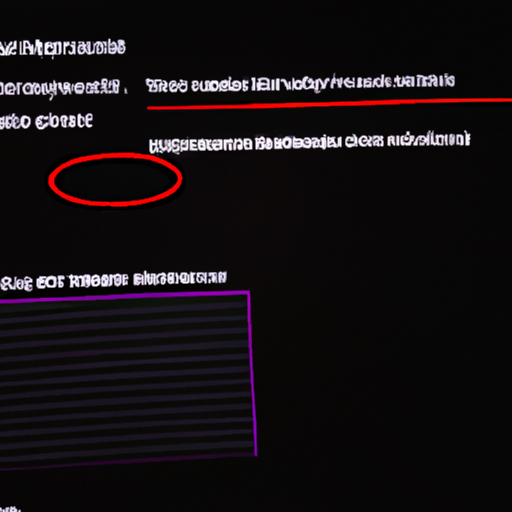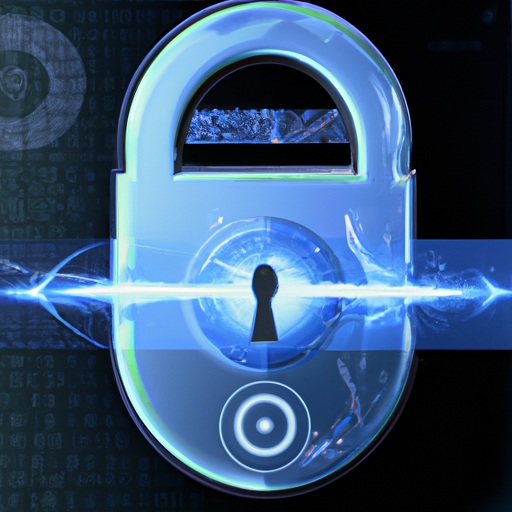How Are Quantum Computers A Threat To Cybersecurity?
Imagine a world where computers can crack any encryption code in seconds, leaving our sensitive information vulnerable to prying eyes. Sounds like the plot of a sci-fi thriller, right? Well, it may not be as far-fetched as you think. Quantum computers, a new breed of supercomputers, have the potential to shatter the foundations of cybersecurity as we know it. In this article, we’ll explore the alarming ways in which these powerful machines can pose a real threat to our digital defenses. So, fasten your seatbelts and get ready to uncover the secrets behind the looming danger of quantum computers in the realm of cybersecurity.
Overview of Quantum Computers
Explanation of quantum computers
Quantum computers are a groundbreaking type of computing technology that leverage the principles of quantum mechanics to perform computations. Unlike classical computers, which operate using bits that can be in either a 0 or 1 state, quantum computers use quantum bits or qubits. Qubits can exist in a superposition of states, meaning they can be both 0 and 1 simultaneously, allowing for parallel processing and the potential to solve complex problems at an unprecedented speed.
Comparison to classical computers
When comparing quantum computers to classical computers, the most significant difference lies in their computational power. While classical computers solve problems by performing a series of sequential calculations, quantum computers harness the power of qubits to process multiple solutions concurrently. This gives quantum computers the potential to solve certain problems exponentially faster than classical computers, paving the way for revolutionary advancements in various fields, including cryptography.
Potential applications of quantum computers
The high computational power of quantum computers opens up a realm of possibilities for various applications. In addition to cryptography, quantum computers have the potential to revolutionize fields such as drug discovery, optimization problems, weather forecasting, and molecular modeling. By solving complex problems more efficiently, quantum computers have the potential to reshape industries and bring about scientific breakthroughs.
Quantum Computing and Encryption
Importance of encryption in cybersecurity
Encryption plays a vital role in ensuring the security and confidentiality of sensitive data transmitted over digital networks. It protects information by converting it into an unreadable format for unauthorized users, thereby safeguarding it from interception and unauthorized access. Encryption techniques and algorithms form the fundamental building blocks of modern cybersecurity measures.
Current encryption methods
Classical encryption methods, such as RSA and elliptic curve cryptography, currently form the backbone of modern encryption standards. These encryption techniques rely on the mathematical difficulty of solving certain problems, such as prime factorization or the discrete logarithm problem, to provide security. However, their security depends on the assumption that classical computers cannot solve these problems efficiently within a reasonable time frame.
Vulnerabilities of classical encryption to quantum computers
Quantum computers pose a significant threat to classical encryption methods due to their ability to leverage quantum algorithms to solve certain problems more efficiently. For example, Shor’s algorithm, a quantum algorithm, can factor large prime numbers significantly faster than classical algorithms. As a result, public key cryptography, which relies on the difficulty of factoring large numbers for its security, is rendered vulnerable to quantum attacks.
Quantum computing’s impact on encryption
The rise of quantum computing has raised concerns about the viability and security of current encryption techniques. As quantum computers advance, they have the potential to break many of the encryption algorithms that are widely used today, compromising the security of sensitive information. To maintain cybersecurity in the era of quantum computing, it is crucial to develop and adopt quantum-resistant encryption methods.
Breaking Public Key Cryptography
Symmetric and asymmetric encryption
Public key cryptography, also known as aSymmetric encryption, is the foundation of many secure communication protocols, including SSL/TLS for secure web browsing. It utilizes two related keys, one for encryption (public key) and another for decryption (private key). Symmetric encryption, on the other hand, employs a single key for both encryption and decryption. While symmetric encryption is computationally efficient, public key cryptography provides important advantages such as secure key exchange and digital signatures.
Quantum algorithms for breaking public key cryptography
Quantum computers have the potential to break public key cryptography by leveraging quantum algorithms that exploit the vulnerabilities of current encryption techniques. Shor’s algorithm, one of the most significant quantum algorithms, can factor large numbers efficiently, which undermines the security of widely used algorithms such as RSA and elliptic curve cryptography. By factoring large numbers, an attacker could decrypt encrypted information or forge Digital signatures.
Shor’s algorithm
Shor’s algorithm is a quantum algorithm that efficiently solves the integer factorization problem, which is the basis of the security of many public key cryptography algorithms. The algorithm leverages the quantum computer’s ability to process multiple inputs simultaneously to factorize large numbers in polynomial time, whereas classical computers require exponential time for the same task. The efficiency of Shor’s algorithm is a cause for concern in the field of cybersecurity, as it can break widely used encryption methods.
Efficiency of quantum algorithms
The efficiency of quantum algorithms is a critical aspect of their impact on cryptography. Unlike classical algorithms, which solve problems sequentially, quantum algorithms can simultaneously process multiple solutions, providing a significant advantage in certain computations. While this efficiency is beneficial for solving complex problems, it also poses a risk to classical encryption methods. The ability of quantum computers to break cryptographic algorithms efficiently necessitates the development and adoption of quantum-resistant encryption techniques.
Implications for Cryptocurrency
Cryptocurrency and blockchain technology
Cryptocurrency, such as Bitcoin, has gained significant popularity in recent years, driven by the decentralized and secure nature of blockchain technology. Blockchain relies on cryptographic algorithms to secure transactions and ensure the integrity and immutability of the distributed ledger. The robustness of the encryption algorithms used is crucial in maintaining the security and trustworthiness of cryptocurrencies.
Vulnerabilities of cryptocurrency to quantum computers
Quantum computers pose a potential threat to the security of cryptocurrencies due to their ability to break the cryptographic algorithms underpinning blockchain technology. As quantum computers advance in power, they could potentially decrypt transactions, access private keys, and manipulate the blockchain’s integrity. Such vulnerabilities could compromise the entire cryptocurrency ecosystem and undermine the trust placed in digital currencies.
Quantum attacks on cryptocurrency
Quantum attacks on cryptocurrency primarily revolve around breaking the cryptographic primitives used in blockchain technology. This includes attacks on the public key cryptography used for secure transactions and the hash functions employed in creating digital signatures. The strength of these cryptographic algorithms is undermined by the potential of quantum computers to break them efficiently, posing a serious risk to the security of cryptocurrencies.
Need for quantum-resistant cryptocurrencies
The emergence of quantum computing underscores the need for quantum-resistant cryptocurrencies. To ensure the long-term security and viability of digital currencies, researchers and developers are actively exploring and designing new cryptographic algorithms that can withstand attacks from quantum computers. Quantum-resistant cryptocurrencies aim to address the vulnerabilities posed by quantum computing and maintain the security and integrity of digital financial transactions.
Threats to Digital Signatures
Importance of digital signatures
Digital signatures are cryptographic mechanisms that provide authentication, integrity, and non-repudiation to digital documents or transactions. They verify the authenticity of the sender and ensure that the content has not been tampered with during transmission. Digital signatures play a crucial role in various applications, including electronic contracts, financial transactions, and secure communication protocols.
Vulnerabilities of digital signatures to quantum attacks
Digital signatures that rely on currently used public key cryptographic algorithms are vulnerable to quantum attacks. The strength of these digital signatures is predicated on the computational difficulty of certain mathematical problems, such as the factorization of large prime numbers or the discrete logarithm problem. Quantum computers can solve these problems efficiently using algorithms like Shor’s algorithm, compromising the security of digital signatures.
Quantum-safe alternatives for digital signatures
To address the vulnerabilities posed by quantum computers, researchers are actively developing quantum-safe algorithms for digital signatures. These quantum-resistant algorithms aim to provide the same level of security and privacy as existing algorithms but without the susceptibility to quantum attacks. Promising approaches include lattice-based cryptography, code-based cryptography, and multivariate polynomial cryptography. The development and adoption of quantum-safe alternatives are crucial to ensuring the continued security of digital signatures.
Transition challenges to quantum-safe algorithms
While the development of quantum-safe alternatives for digital signatures is ongoing, transitioning from current cryptographic algorithms to quantum-resistant ones presents challenges. Widely deployed systems and protocols will need to be updated and replaced, which entails significant coordination and effort. Furthermore, ensuring interoperability between existing and quantum-safe systems will be critical to the successful transition to quantum-resistant digital signatures.
Quantum Hacking of Encrypted Communications
Securing communication channels with encryption
Encryption plays a fundamental role in securing communication channels by ensuring the confidentiality, integrity, and authenticity of transmitted data. Encryption protocols such as SSL/TLS are widely used to establish secure connections over the internet, safeguarding sensitive information from eavesdropping and tampering. However, the rise of quantum computing poses new challenges to the security of encrypted communications.
Quantum hacking of commonly used encryption protocols
Quantum computers have the potential to break commonly used encryption protocols, such as SSL/TLS, due to their ability to crack the underlying cryptographic primitives. By exploiting the vulnerabilities of these protocols, quantum computers can potentially intercept and decrypt sensitive information, breaching data privacy and security. This poses a significant threat to confidential communication over digital networks.
Quantum-resistant encryption protocols
To mitigate the threat posed by quantum computers, researchers are working on developing quantum-resistant encryption protocols. These protocols aim to provide secure communication channels that are resilient to attacks from quantum computers. Post-quantum cryptographic algorithms, such as lattice-based, code-based, and hash-based cryptography, hold promise in providing quantum-resistant encryption. Implementing and adopting these protocols is crucial in ensuring the security of encrypted communications in the quantum computing era.
Challenges in implementing quantum-resistant encryption
The implementation of quantum-resistant encryption protocols presents various challenges. Compatibility with existing systems and infrastructure is a significant concern, as transitioning to new encryption protocols will require substantial effort and coordination. Additionally, the computational complexity and performance costs of these protocols need to be carefully considered to strike a balance between security and efficiency in real-world applications. Overcoming these challenges is essential for the successful adoption of quantum-resistant encryption in the face of quantum computing.
Emerging Threats: Post-Quantum Cryptanalysis
Post-quantum cryptanalysis and its significance
Post-quantum cryptanalysis refers to the study and analysis of cryptographic algorithms in the context of quantum computers. It aims to identify potential vulnerabilities and weaknesses in existing cryptographic algorithms and propose new algorithms that can resist attacks from quantum computers. Post-quantum cryptanalysis is of critical importance as it enables the development and deployment of robust and secure cryptographic systems in the quantum computing era.
Potential vulnerabilities of post-quantum encryption
While post-quantum encryption algorithms strive to provide resistance against quantum attacks, they may also introduce new vulnerabilities and attack vectors. The complexity of these new algorithms and the evolving nature of quantum computing pose challenges in fully understanding their security characteristics. It is crucial to thoroughly analyze and assess the post-quantum cryptographic algorithms to identify and mitigate any vulnerabilities that may arise.
Combating post-quantum cryptanalysis
To combat the emerging threats posed by post-quantum cryptanalysis, interdisciplinary collaborations between researchers, mathematicians, and computer scientists are crucial. Extensive research and analysis of new encryption algorithms are necessary to establish their security, efficiency, and resistance against both quantum and classical attacks. Regular review and validation of these algorithms will ensure their robustness and enable prompt responses to any potential vulnerabilities that may be identified.
Research and developments in post-quantum cryptography
The field of post-quantum cryptography is rapidly evolving, with extensive research and development efforts underway. International organizations, academic institutions, and industry leaders are actively engaged in exploring and standardizing post-quantum cryptographic algorithms and protocols. Ongoing advancements in the field aim to provide quantum-resistant solutions to secure various aspects of digital communication, including key exchange, digital signatures, and secure communication protocols.
Quantum Computers and Password Security
Current password security practices
Password-based security is widely used to protect digital accounts and sensitive information. Current password security practices involve selecting complex passwords, implementing multi-factor authentication, and regularly updating passwords. However, password-based security is vulnerable to attacks, including brute-force attacks and dictionary attacks, which exploit weak or reused passwords.
Quantum attacks on password-based cryptography
Quantum computers have the potential to significantly impact password-based cryptography by accelerating brute-force attacks. Quantum algorithms, such as Grover’s algorithm, can search through a large number of possibilities and find the correct password more quickly than classical computers. This poses a grave threat to password security, as quantum computers could potentially decrypt encrypted passwords and gain unauthorized access to accounts.
Quantum-safe alternatives for password security
To address the vulnerabilities of password-based cryptography to quantum attacks, quantum-safe alternatives are being explored. One such approach is the use of post-quantum cryptographic algorithms, such as lattice-based cryptography or code-based cryptography, to secure password storage and authentication. These quantum-resistant methods aim to maintain the security of passwords even in the presence of powerful quantum computers.
Adoption challenges for quantum-resistant password security
Despite the potential advantages offered by quantum-resistant password security, widespread adoption faces challenges. The integration of new encryption algorithms into existing systems and practices can be complex and time-consuming. Additionally, educating users about the importance of strong passwords and the risks posed by quantum computing is necessary to drive adoption. Overcoming these challenges is crucial to ensuring password security in the age of quantum computers.
The Race for Quantum-Safe Solutions
Global efforts towards quantum-safe solutions
Around the world, governments, organizations, and researchers are actively engaged in the development and implementation of quantum-safe solutions. These efforts include funding research projects, establishing collaborations, and fostering partnerships. The aim is to accelerate the development of quantum-resistant encryption algorithms while ensuring international cooperation and coordination.
Collaborative research initiatives
Collaborative research initiatives bring together experts from various fields and organizations to address the challenges posed by quantum computing. These initiatives promote knowledge sharing, encourage interdisciplinary research, and facilitate the development of practical and standardized quantum-resistant solutions. By pooling resources and expertise, these collaborations aim to accelerate the progress towards quantum-safe solutions.
Standardization of quantum-resistant algorithms
Standardization is crucial in ensuring interoperability and widespread adoption of quantum-resistant algorithms. International bodies, such as the National Institute of Standards and Technology (NIST), are leading efforts to evaluate and standardize post-quantum cryptographic algorithms. By establishing standard algorithms, protocols, and practices, a foundation is laid for the secure and efficient implementation of quantum-resistant solutions.
Industry adoption and preparedness
Industry leaders are recognizing the importance of quantum-resistant solutions in maintaining cybersecurity. Organizations across various sectors are investing in research, development, and implementation of quantum-safe encryption algorithms and protocols. By taking proactive measures and staying up-to-date with the advancements in quantum computing and encryption, industries are better equipped to mitigate the risks posed by quantum computers to their cybersecurity.
Conclusion
In conclusion, the rise of quantum computers poses significant threats to cybersecurity, particularly in the realm of encryption. The exponential computational power of quantum computers puts current encryption methods at risk, potentially compromising the security of sensitive data, digital signatures, and encrypted communications. It is essential to proactively address these challenges by developing and adopting quantum-resistant encryption algorithms and protocols. Ongoing research, collaboration, and standardized efforts are key to ensuring the security and integrity of digital systems and communications in the quantum computing era. Continued advancements in quantum-safe solutions will play a vital role in enhancing cybersecurity and maintaining public trust in the digital age.








